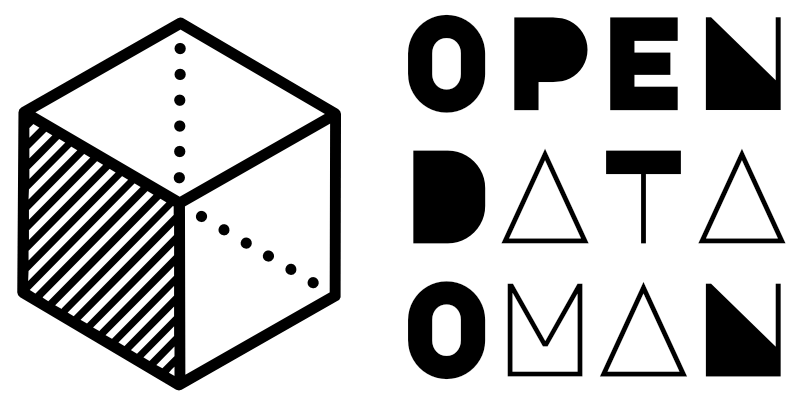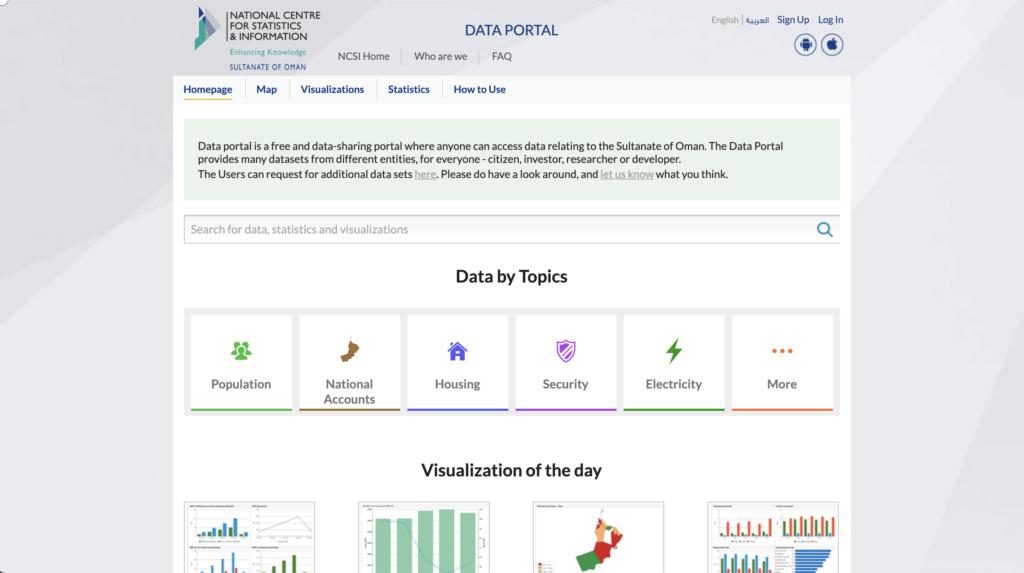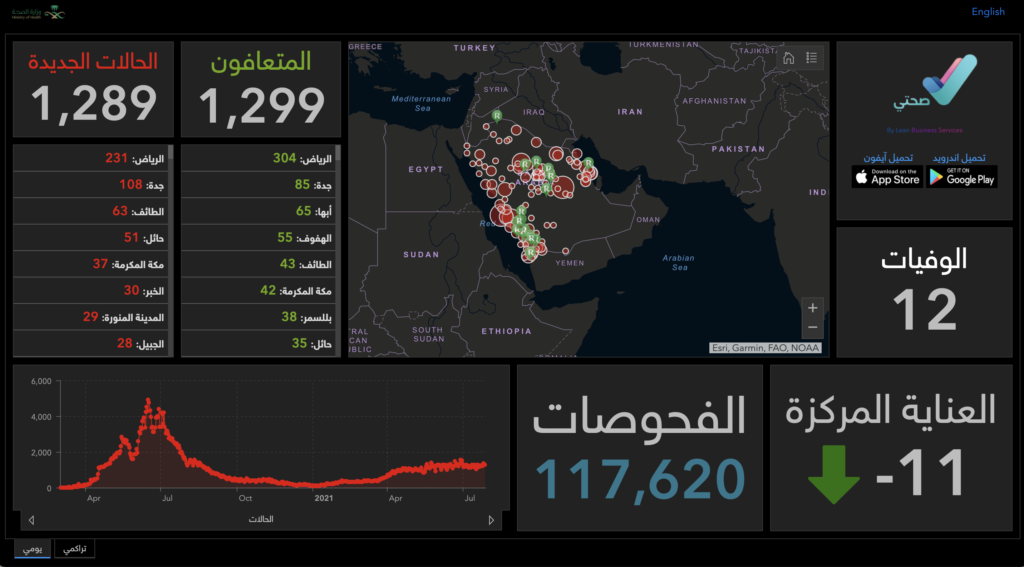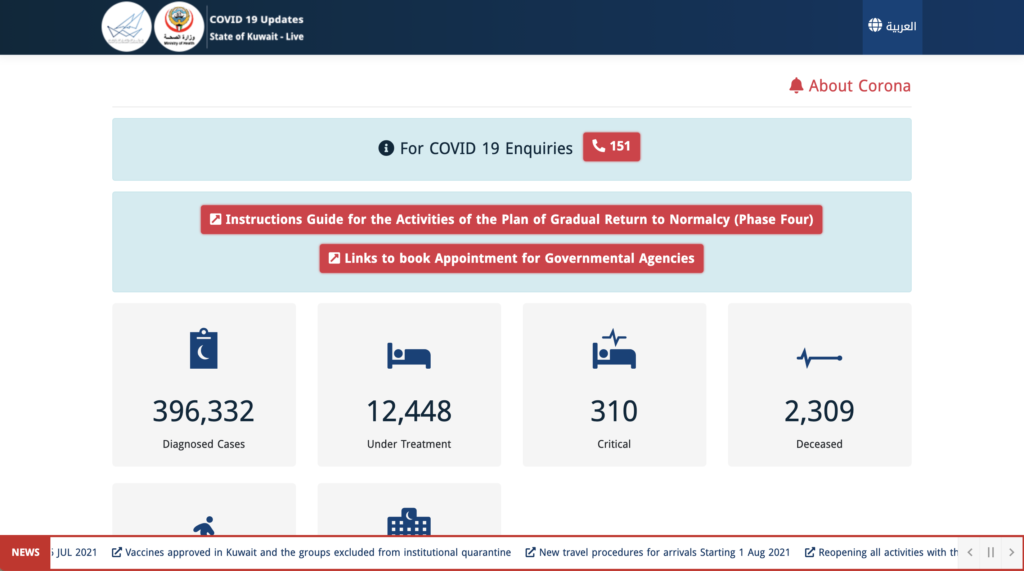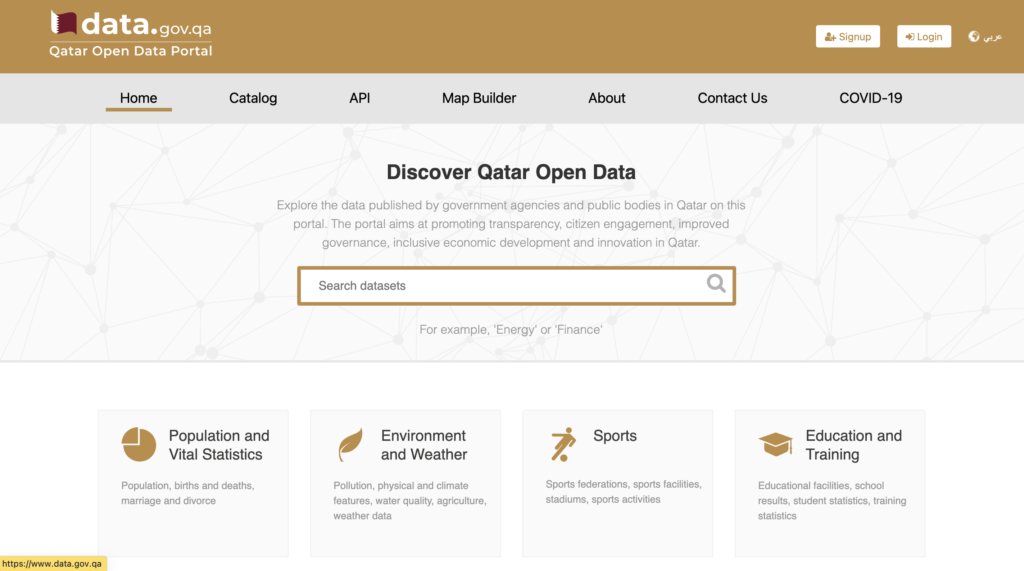GCC countries have invested significant resources in developing national data portals, but most of these portals have yet to publish a single dataset relating to the biggest global pandemic of our lifetimes, COVID-19. Instead of utilising their familiar and tested platforms for releasing data, GCC countries launched independent dashboards for making COVID-19 data available to the public. The issue with this approach is that these new dashboards fail to comply with the most basic principles of open data. This has limited the ability of members of public to use this data in ways that would otherwise have contributed to managing the crisis.
Government interest in data has been growing before COVID, and countries in the GCC recognise the importance of having up to date and comprehensive data as tools that can enable them to develop strategies, laws, and policies based on evidence and real-life facts and to evaluate their effectiveness and impacts. Governments have also become more aware of the value that their data can add to businesses, academia, and civil society. As a result, governments have started working on creating national data portal to act as a one-stop shop for accessing all publicly available government data.
In the GCC, each of Bahrain, Oman, Qatar, Saudi, and the UAE have had national data portals before COVID-19. Kuwait is the only GCC country that does not have a similar portal. Some of these portals are labelled as “open” data portals to indicate that the published data is technically and legally open. In other words, they permit users to use the data for commercial and non-commercial purposes, for example to create business solutions or conduct research, and to use the data in any manner without the need to seek any permission from the government.
The significant role that data was going to play in managing the coronavirus pandemic was evident from the very beginning. The global objective had been to “flatten the curve” until a vaccine was created. This was an opportunity for the GCC national data portals to demonstrate to their societies the value and effectiveness of these portals, especially since they all had designated a “health” category in their data catalogue. However, more than a year and a half after COVID-19 broke, the only GCC national data portal that has COVID data is the national open data portal of Qatar. All other data portals in the GCC do not have a single mention of COVID, do not publish data related to it, and they do not provide any links or information as to where this data can be obtained.
Of course, this is not to say that GCC countries have not shared any COVID data with the public. In fact, one might say this pandemic has been the biggest single occasion in which GCC countries have shared data with their citizens and residents and have directly engaged with society and the press in ways that are considered groundbreaking for this region from a transparency point of view.
In addition to the regular and frequent updates from the government on dedicated social media accounts and on traditional media outlets, a trend that dominated during this pandemic was a creation of dedicated COVID-19 dashboards to display the latest daily and aggregate data of vital COVID cases, recoveries, deaths, hospitalisations, and vaccinations. In Bahrain, Kuwait, Qatar, Saudi, and the UAE these dashboards are web based applications that can be viewed on the desktop and on mobile devices without the need to install any applications. Oman is the only GCC country that has not created such a dashboard and has not made any updates to its national data portal to publish COVID data. Instead, the only official data dashboard made available by the Omani government is found through the mobile phone application Tarassud.
While there is no doubt that such dashboards are useful and provide critical information to members of the public, they are problematic for a number of reasons. First, unlike national data portals which have been created with the objective of being a central repository for government data, these dashboards have been created to deal with a specific incident and there is a real risk that the data published on these portals will be taken down once the pandemic is over. This might be problematic to those interested in studying the data at a later stage. Second, unlike national data portals, these dashboards have not been designed using any of the principles of open data that are intended to maximise the ability to re-use the data. For example, the data available on these portals are not available for download at all, are not machine readable, and do not adopt any of open licensing approaches already in use in the GCC. As a result, it is impossible for an academic to easily obtain the data to analyse, for example, the impact different social distancing measures had on case numbers or hospitalisation.
The only exception to this approach has been Qatar. Qatar has demonstrated that its open data efforts are the most mature in the region. Not only does Qatar have a state-of-the-art open data portal that is fully compliant with the technical and legal standards of open data, but it had reasonably reacted to the global pandemic by highlighting COVID-19 as a key section on its website prominently placed on the main menu of the website. This has also not stopped Qatar from creating a separate easy to use dashboard for displaying daily updates similar to the other GCC countries.
By failing to publish COVID data, GCC national open data portals in Bahrain, Kuwait, Oman, Saudi, and the UAE missed a once in a life-time opportunity to showcase these portals to their communities, justify their existence, and provide critical data that society is eager to access. The fact that the standalone COVID dashboards fail to comply with the most basic standards of open data also demonstrates the lack of appreciation for open data by those responsible for these dashboards. Complying with open data principles is not expensive and does not require high technical skill. Instead, it requires an appreciation for what open data means and the ways in which it contributes to the efforts of the government in the area of innovation, transparency, and empowerment.
You can view Open Data Oman COVID-19 dataset on this link.
